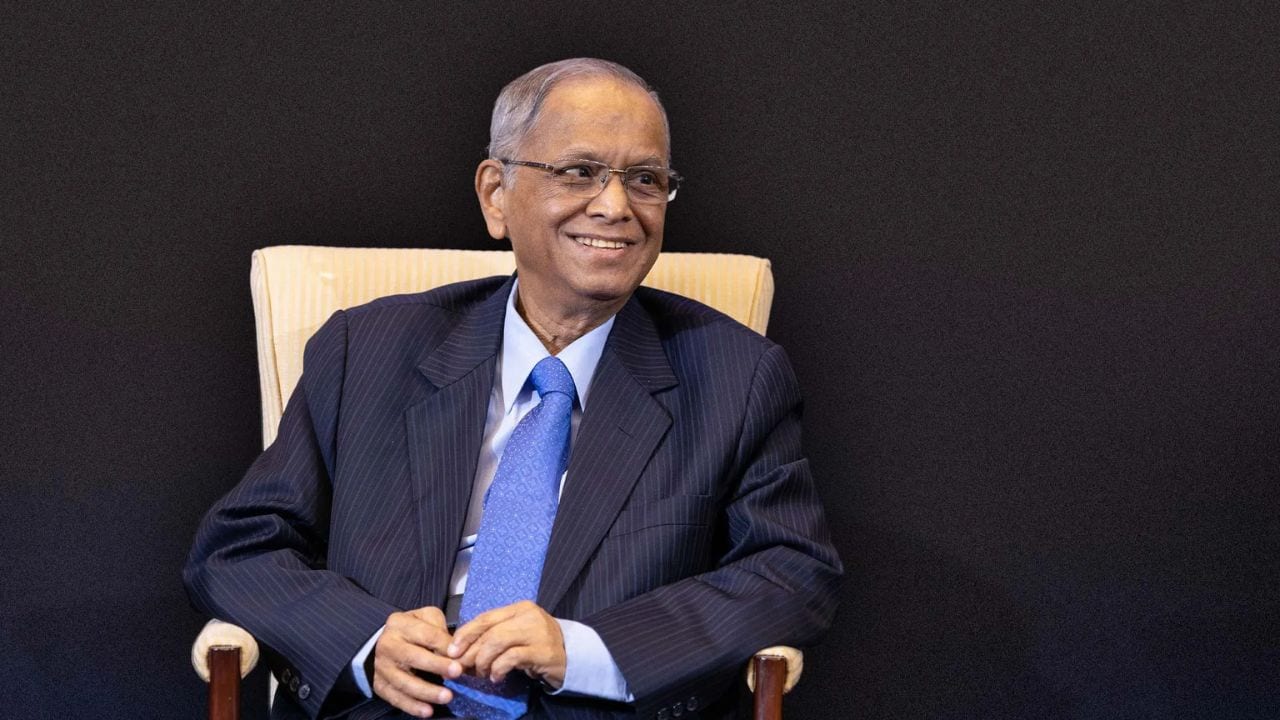Narayana Murthy, co-founder of Infosys, is not just a celebrated entrepreneur but also a prominent voice on social and educational issues.
His candid comments often stir debate and inspire discussions across various platforms.
Below, we explore some of the most provocative statements he had made over the years.
1. On Parental Responsibility in Education
During the launch of Paul Hewitt’s 13th edition of Conceptual Physics in Bengaluru on September 9, Murthy emphasized the importance of parental discipline in children’s education. He critiqued parents who engage in entertainment, expecting their children to study in a non-conducive environment. “If the parents are going and seeing movies and then telling ‘children, no, no, you study’ (that won’t work),” he said.
Murthy highlighted how he and his wife, Sudha, would dedicate more than 3.5 hours each day to his children Akshata and Rohan Murthy during their school years, setting a personal example rather than merely instructing them.
2. The Coaching Class Culture
Addressing the high suicide rates in Kota, Rajasthan – a hub for coaching institutes – Murthy pointed out the inefficiencies in the reliance on coaching classes for competitive exams. “Coaching classes are the wrong way to help children to pass examinations. I don’t believe in coaching classes,” he stated at the unveiling of a best-selling book in Bengaluru.
He expressed concern over students not paying attention in regular classes and the inability of parents to assist, leading to a cycle of dependency on these costly institutes. “Most people who go to coaching classes, they don’t listen to their teachers carefully in the class and poor parents, they are not as competent to help them and therefore they see some value, Murthy said.
3. 70-Hour Work Week
Murthy ignited a debate by suggesting that young Indians should work 70 hours a week to increase the nation’s productivity and competitiveness on the global stage. “Unless we improve our work productivity… we will not be able to compete with those countries that have made tremendous progress,” remarked Murthy on the first episode of 3one4 Capital’s podcast ‘The Record’. “So therefore, my request is that our youngsters must say, ‘This is my country. I’d like to work 70 hours a week,” he added.
His comments, which were perceived as promoting an extreme ‘hustle culture,’ drew backlash from various quarters on social media, with critics arguing that such demands could lead to burnout and were particularly insensitive to the challenges of working women.
4. Infosys COO Pay Controversy
In 2017, Murthy publicly criticized the substantial pay hike approved for Infosys’ COO, Pravin Rao. He argued that the decision was “not proper” and would erode trust among employees, highlighting a discrepancy between top executive and average employees compensation. His stance reflected his ongoing concern for equity and fairness within corporate compensation practices.
5. Opposition to Remote Work
Following the COVID-19 pandemic, as companies worldwide were embracing remote work or ‘WFH’, Murthy expressed his opposition to this model for India. “I am not a great fan of work from home at all,”, Murthy quoted. He further stressed that working from the office is crucial for productivity and advocated for a return to traditional work environment to boost efficiency and collaboration.
Murthy also went on to say that a work from home system does not suit a country like India where people live in ‘multi-generational households,’ ‘have poor Internet bandwidth,’ and ‘do not have a separate room to convert into a home office.’ This comment was met with mixed reactions on social media creating a debate on the efficacy of a remote work system being picked by organizations.
Narayana Murthy’s statements often challenge the status quo, pushing for a more introspective and proactive approach to societal issues. Whether it is education, entrepreneurship, or national identity, his words continue to provoke thought and debate among the public and policymakers alike.
Source: BBC, The Economic Times, Business Today, The News Minute, Moneycontrol, India Today
